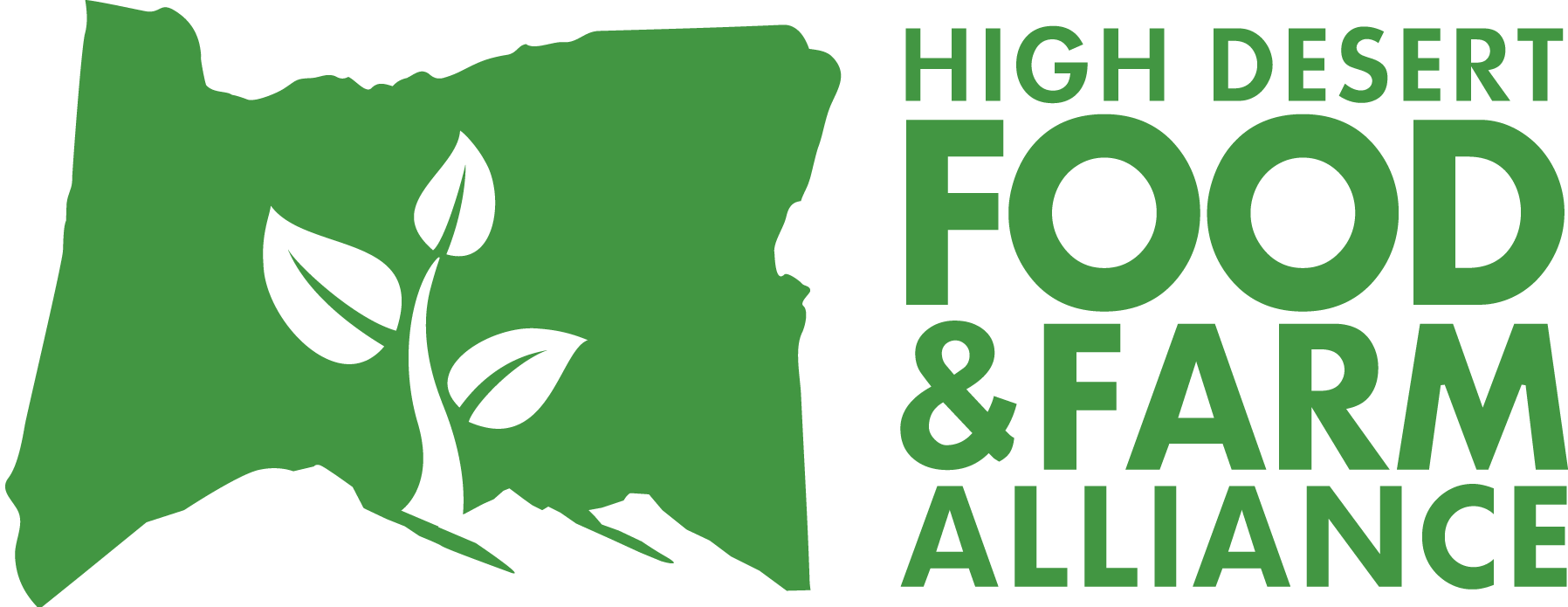History
Our Beginnings
In 2008, Central Oregon farmers markets only accepted cash and were small in size with many vendors coming from the Willamette Valley. Katrina Van Dis’ first project while working at Central Oregon Intergovernmental Council was to expand access to these markets, for local farmers and consumers. Having grown up on a farm in Eastern Oregon, she sold cherries on the side of the road and established wholesale markets at Safeway at 13 years old. This project was the perfect opportunity to combine her lived and professional experiences. In 2009 and for the first time, residents with limited incomes could use their SNAP or Food Stamp card to purchase local food at four regional farmer’s markets. In 2010, over $11,000 worth of food was purchased with food stamps at the five participating markets.
Building on this project, Katrina and a team of incredible women (see below), hired a VISTA member to conduct a 2010 Food Assessment to determine a baseline understanding of the Central Oregon food system. What they found was ample opportunity for improvements (from the ground to the table) in our food system and with food security.

OSU Extension
Dana Martin
Support Farmers and Ranchers

COIC
Katrina Van Dis
Support Food System Economy

NeighborImpact
Holly Hutton
Provide Local Food Access

Wy’East RC&D
Debbe Chadwick
Fiscal and Admin Support
Innovative Model
Central Oregon’s economy and culture is based upon agriculture and natural resources. While working at COIC, Katrina recognized the opportunity to develop effective and efficient strategies for food systems development at a regional scale. This meant leveraging her work at a public agency and simultaneously developing a nonprofit that could effectively capture both public and private sources of funding. This public-private partnership has become a model for the natural resource work across the nation.
Food System
The food system encompasses the entire food chain from farm to plate. Yet this system is built and maintained on a foundation of oppression and systemic racism of Black, Indigenous, people of color (BIPOC) and immigrants. Federal policies have historically limited access to land and capital for farmers and ranchers while creating inequitable food access for people.
Recognizing this is the framework, it is within our mission to break down barriers to accessing, farming, raising and crafting food. We strategically reduce these barriers so that regional food products can be enjoyed by everyone. We focus on improving access to good food for individuals that have been marginalized, and supporting the small to mid-sized, beginning (less than 10 years) farmers and ranchers who grow and raise our food.
We fundamentally believe that everyone deserves good food, defined as affordable, nutritious and culturally preferred food that is easily accessible and sustainably produced in Central Oregon.
Our Commitment
The HDFFA Team aspires to be an organization that is equitable, diverse and inclusive in our services and programs, and as an imperative in our everyday activities and operations. We honor the variety of cultural perspectives that are present in Central Oregon, seek to overcome food access and health disparities, and embrace diversity. We are committed to building a sustainable and just food system in Central Oregon recognizing that advancing these values is ever evolving.
We commit to engaging in an ongoing learning process around privilege, power, inequality and systems of oppression, and using our organizational power to be an agent of change, primarily in Central Oregon. We acknowledge that change needs to happen now, and recognize that it will take patience and dedication.
Diversity: full range of differences and similarities visible and non-visible that make each individual unique, such as race, ethnicity, sexual orientation, gender, abilities and disabilities, religion, age, and perspectives arising from different backgrounds.
Equity: understanding that there are varied needs of different groups based on identity. Equity values equal outputs and recognizes that everyone starts from a different place.
Inclusion: environment that engages multiple perspective, where diverse individuals are able to participate fully in the decision-making processes within an organization, group (or network). It’s ensuring a seat at the table.
(Oregon Community Food System Network working definitions for DEI)
OVER THE YEARS
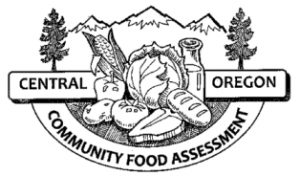 It all started with an Food Assessment
It all started with an Food Assessment
In 2010, a Central Oregon Needs Assessment was conducted by an Americorps member with oversight from Central Oregon Intergovernmental Council, NeighborImpact, OSU Extension and WyEast RC&D. The assessment included lengthy interviews with agricultural producers, emergency food providers and other stakeholders.
Producer Needs
Producers indicated that 66% of produce is sold locally, with 82% of respondents interested in increasing sales within the region. The most common barriers were the difficulty in locating and interacting with local consumers and the lack of a distribution system. The majority of producers use farmers markets and Community Supported Agricultural shares (CSA) to sell their goods; however, they have difficulty expanding into the food businesses and institutional direct markets. Most producers use off-farm income to remain viable and feel that a lack of government support is an impediment to farm viability.
Consumer Needs
The majority of regional consumers want to see fresher, local produce in the community. Among the low-income consumers who responded to a food assistance client survey, 73% reported that if money were not an issue, they would buy more fresh fruits and vegetables. In general, the surveys suggested that improving food security for the region could include:
- Recruiting volunteers at food banks
- Understanding the impact of the SNAP on the local food economy
- Improving nutrition in schools
- Expanding food safety and skills education courses for the public and low-income residents
Food Summit
In 2011, a Food Summit was held with 130 people and keynote speaker and author Mark Winne who recommended forming a Food Policy Council. The enthusiasm that grew from the Food Summit combined with a strong local food movement resulted in the creation of the Central Oregon Food Policy Council.
Food Policy Councils
Food Policy Councils are formal organizations that bring together stakeholders from diverse food-related sectors to examine how the food system is operating and to develop policy recommendations on how to improve it. With the good graces of many wise and strong-willed citizens, a strategic plan was developed, and a 13-member board was appointed to form the new non-profit organization in 2012. The Board of Directors represented farmers and ranchers, food businesses, hunger relief, public health, land-use, local government, university, and the community-at-large.
Funding
In October 2011, Meyer Memorial Trust (MMT) awarded COIC a three-year grant entitled Cultivating Local Food for a coordinated set of initiatives to combat regional food insecurity and boost the regional economy. One of the principal goals of COIC’s Cultivating Local Food project is to alleviate these issues by focusing on increasing access for low-income individuals, which was accomplished by:
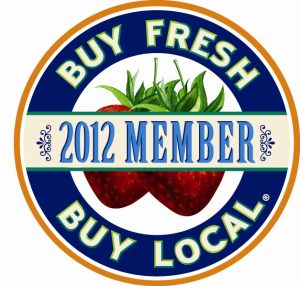 Enhance existing community gardens
Enhance existing community gardens
- Providing financial support every garden in Central Oregon
- Funding the OSU demonstration greenhouse
- Producing the Central Oregon Community Garden Manual
- Provide food skills education
- Improve food production through season extenders
- Grants to farmers and gardeners to build greenhouses; in return, the recipients must donate a portion of the produce to the regional food bank
- Increased transportation and distribution options for local food
- Fund Cascade Couriers to pick up locally produced products from businesses and farmers to be delivered to a centralized location and distributed to the community.
 Regional Marketing Campaign to promote local food to regional consumers now our Food & Farm Directory
Regional Marketing Campaign to promote local food to regional consumers now our Food & Farm Directory
Simultaneously Developing a non-profit
At the same time that Katrina was working on the Cultivating Local Food program, she was also the co-chair of the Central Oregon Food Policy Council (COFPC). In 2012, COFPC became an official nonprofit organization that was volunteer driven. With limited capacity but a lot of passion, the volunteer board focused on:
- Analysis of land-use policies with regards to farming practices in the tri-county region
- Participating in in Project Connect, where we provided fresh food from local farmers to those at-risk or currently homeless residents.
Establishing HDFFA
In 2012, the Central Oregon Food Policy Council was officially a 501c3 nonprofit organization. But given that the name included the term “policy” many constituents and beneficiaries were hesitant to get involved. In 2014, we changed our name to the High Desert Food & Farm Alliance to better reflect our work. Our focus transitioned from land-use and policies to the broader food system, which includes increased access to and education about healthy food.
Many Firsts
Our first employee was hired in 2015, which meant that we were finally able to increase our capacity to provide services to the region. We started collaborating with farmers and ranchers to determine gaps and provide educational workshops.
- First Chef-Farmer Mixers event
- Local Food Challenge to improve purchasing of local food by residents
- Taste Local Thursdays events to showcase how restaurants utilize local food
- High Desert Food & Farm Directory.
- Initiated Cooking Matters and Seed to Supper based on the desires stated by residents to improve food access.
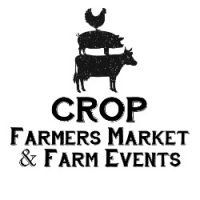
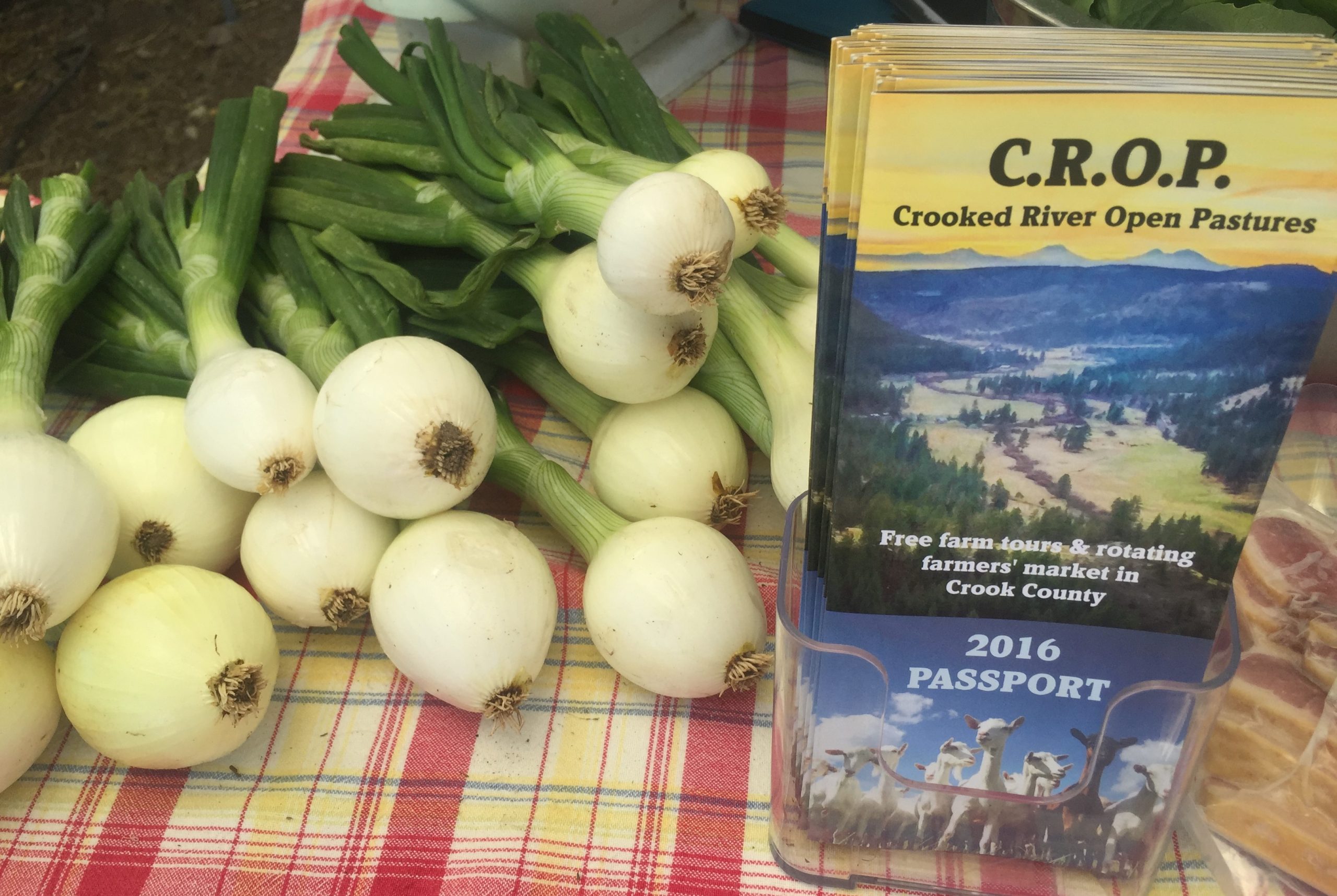
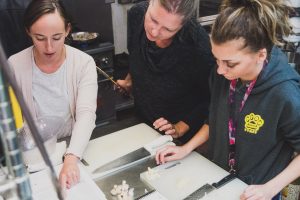
Public-Private Partnership
At this point in time, HDFFA was a standalone entity but had limited income streams. Katrina as an employee of COIC and the Board Chair of HDFFA, continued to fund the organization by writing grants under COIC to fund food system initiatives that met both the mission of COIC and HDFFA. This included an ODA Specialty Crop Block grant that supported the establishment of the Crook County Crooked River Open Pastures (CROP) and Jefferson County Educational Agricultural Tours (EATs) to bring more tourists to the rural parts of Central Oregon and showcase our amazing producers.
We began to reach out to value added producers and food businesses as they too are contributing to the local food system, and started working with the Local Food Cluster group. We refined and expanded our food access programs, Cooking Matters and Seed to Supper, in other cities in the region, including the community of Warm Springs, and developed a new program, Grow & Give.
to the local food system, and started working with the Local Food Cluster group. We refined and expanded our food access programs, Cooking Matters and Seed to Supper, in other cities in the region, including the community of Warm Springs, and developed a new program, Grow & Give.
HDFFA
In 2017, Katrina left COIC to become the first Executive Director, who was the founder, board member and visionary leader for the organization. She and her board developed a new 3-year strategic plan and updated the mission to further define the focus of providing education and improving collaboration. Having received a USDA Community Food Projects grant while at COIC, Katrina was able to fund herself as the Executive Director and transition this grant from COIC to HDFFA, which allowed us to focus on the long-term growth and sustainability of our food access programs.

We continued to provide Cooking Matters and initiated Grow & Give and Veggie Rx but dropped Seed to Supper because it was underutilized and difficult to implement as a volunteer-driven program. We further developed the agricultural support programs to include season extender grants, marketing materials, supplies to improve farming practices, and annual Chef-Farmer Mixers events to continue building trust, relationships and ultimately new markets among chefs and farmers. Our Food & Farm Directory expanded from a tri-fold brochure in 2014 into a 48-page, full color community resource.
From 2019-2021 we continued to refine our programs and have hit significant milestones along the way. In 2021, we totaled over 100,000 pounds of fresh produce through Grow & Give and have invested over $150,000 in local farms and ranches through direct purchasing and grant distribution. We partnered with the Oregon and local Veterans Affairs to reach homebound U.S. Veterans through our VeggieRx programming. Our staff has grown to a team of eight staff, all dedicated to strengthening our local food and farm network. We developed our Agriculture and Food Security Advisory Committees, which allow us to hear directly from community members in order to improve our programs and their impact. We began to work once again in policy and advocacy, and successfully advocated, along with a small statewide team, for 1.5 million dollars in emergency relief funds for small-scale Oregon producers. Internally, we began the process of working on our diversity, equity and inclusion with a local consultant to identify organizational flaws and weaknesses and to ultimately better serve our Central Oregon community.
We’re looking forward what the future will bring!
